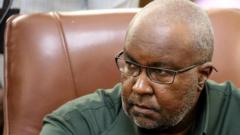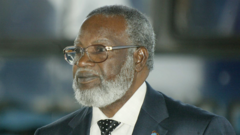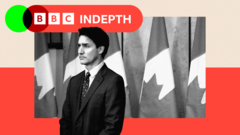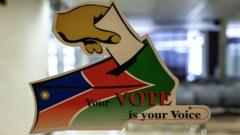Namibia's new president reveals a phased rollout of free tertiary education starting in 2026, but student organizations question the plan's viability due to potential funding issues and vague details regarding its implementation.
Namibia Set to Eliminate University Fees by 2026 Amid Skepticism
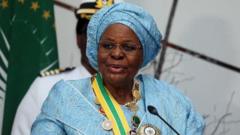
Namibia Set to Eliminate University Fees by 2026 Amid Skepticism
President Netumbo Nandi-Ndaitwah announces plans for free higher education, but concerns arise about funding and feasibility.
Namibia's president, Netumbo Nandi-Ndaitwah, has unveiled a transformative initiative aimed at providing free higher education for students attending public universities and technical colleges, with plans to eliminate all registration and tuition fees by 2026. This announcement was made during her inaugural state of the nation address on Thursday evening.
Nandi-Ndaitwah, the country’s first female president, promised a gradual implementation of the initiative, stating that families would only need to contribute towards accommodation and related expenses for the time being. In her address, she recognized the long-standing demands of students, invoking the chant "the Fees have Fallen," a movement that gained traction in both Namibia and neighboring South Africa over the years.
While primary and secondary education is already offered free in Namibia's public schools, the announcement has garnered mixed reactions from student groups and economists. Many welcomed the proposal for free university education, yet concerns have been raised regarding its practicality. The president hinted that the funding mechanism would rely on existing subsidies to public universities and allocations from the student financial assistance fund but did not clarify how the scheme would be sustained long-term.
The Affirmative Repositioning Student Command (ARSC), a prominent student organization, expressed skepticism, describing the announcement as lacking clarity and potentially opportunistic. Questions loom over which categories of students would qualify for the free education—undergraduates or post-graduates—and how the government plans to address funding shortages despite the ambitious proposal.
This skepticism is echoed by economist Tannen Groenewald, who warned that without additional financial support, the initiative might lead to capped student enrollments or be restricted only to low-income applicants. Observers note similarities to South Africa's 2017 reforms, where fee-free tertiary education became a reality but ultimately excluded many students from the "missing middle" who fell into a financial gray area.
As debates about the feasibility of this plan continue, all eyes remain on Namibia's government to clarify the path forward for students eager for accessible higher education.





